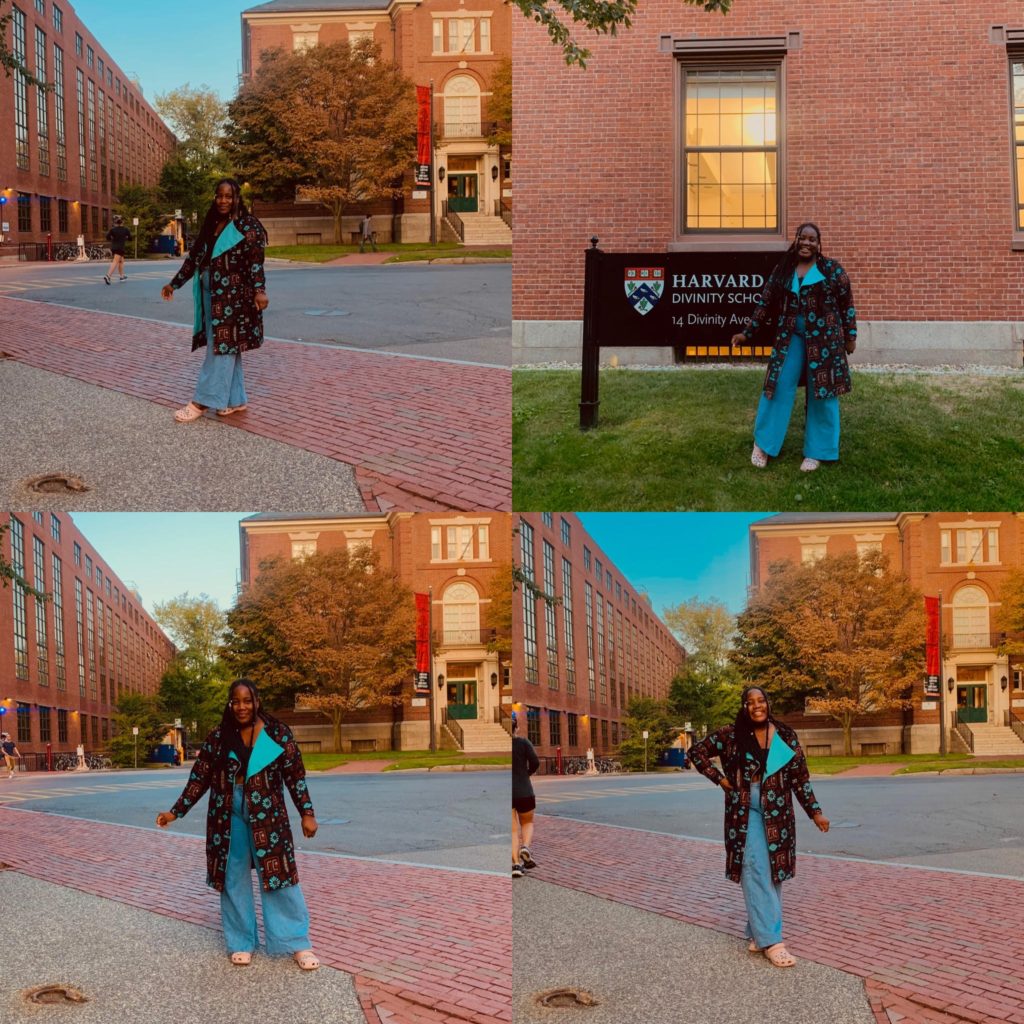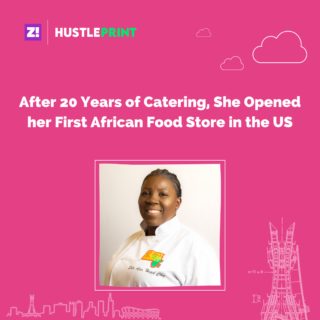
When you’re across the world and five hours behind everyone you love, you quickly learn they can’t always help you through the challenging moments of living in a new city. At least, that’s what I learnt during my first week in Cambridge, Massachusetts.
Between getting confused about how to find the right queue to exit the airport as an immigrant, not knowing when to cross the street and accidentally locking myself outside my room on day three, I’ve had to depend entirely on strangers.
I travelled to Cambridge for my master’s programme. I’d been working on it for three years and finally got a break when I got a scholarship to Harvard in March. Getting a degree from an Ivy League college felt like I’d get a shot at finally working at the United Nations or World Bank. The excitement from my family and friends pacified the idea that I would be alone in a new country in five months. There was no time to focus on that. I needed to prepare for my departure.
The months leading up to leaving were fast. Every single day was a rush trying to meet up with the list of things I needed to pack. Honestly, the most important thing to me was food. Where was I going to find my favourite dried smoked catfish in Cambridge? The city has only 10% of black people in America living there, so I needed to stuff my bags with everything Nigerian — that could fit into two 23 kg luggage.
“They’d ask questions about your trip based on your visa type. But one wrong answer could mean going back to your country.”
How do you fit your entire life into two 23 kg luggage? You can’t. The night before my trip, I watched my mum and her sisters divide everything I owned for my cousins. My favourite clothes, the drawings I’d collected from paint and sip dates with friends and the speaker I tricked my boyfriend into leaving at the house just a month before. It felt slightly depressing.
You may think I’m ungrateful for the opportunity to leave Nigeria, but I couldn’t control feeling sad. The only time I ever left Nigeria before Cambridge was for holidays in Wales as a kid, and now, for the next two years, I’d suddenly be living in a foreign country with no family or friends. Imagine the stress of trying to make new friends as an adult or something as little as trying to figure out how to braid my hair rather than pay someone $200. That fear overshadowed all the hype about Harvard.
The feelings slowly faded away in the departure hall. I guess taking one last selfie with my parents and little brother should have made me feel worse, but somehow, it reminded me of how far we’d come — all the late-night reading for exams while I was working finally made sense. But what really got me was the last text from my mum before my flight took off. “You’re the best part of my dysfunctional relationship,” she said. It was the first time I felt my mum was really proud of me. My mum isn’t the most expressive person, so knowing that made the next 23 hours of transit feel better.
“Only my bags and the huge rosary that once belonged to my grandmother my mum forced into my hand luggage created a semblance of home.”
I’d read articles about immigration officers at the point of entry into the US who try to vet people coming. They’d ask questions about your trip based on your visa type. But one wrong answer could mean going back to your country.
Everything on my documents checked out, but I wouldn’t say I was the most optimistic person.
All my fear came rushing back when I finally landed in Massachusetts. In the departure hall, separate lines are designated for immigrants to access the point of entry. Unlike the Nigerian airports where you see mostly white people on one side, the foreigners were a mix of races. I tried to filter for other Nigerians on my connecting flight from Qatar to Boston, but I couldn’t. A clear sign that I was no longer home.
With my two large bags filled with all the Nigerian snacks and soup spices I took for granted back home, I stood confused. There were airport officials to help, but a dark-haired lady yelling, “Stand on the yellow line if you’re American. Blue line, non-Americans,” didn’t make things easier.
The sensible thing to do was ask for help, but the Nigerian in me wanted to figure it out alone. And that’s a character that doesn’t serve you well in a new country.
RELATED: “Leaving Nigeria Helped Me Accept My Sexuality”-Abroad Life
I finally made it to the right queue when I spotted a man holding a Ghana-must-go bag on the blue line.
When I got past immigration, the next challenge was figuring out how to get from the airport to the apartment I’d rented in Cambridge over an online renting platform. Luckily, my roommate happened to be in the area when I texted to let him know I’d landed safely.
Again, the Nigerian in me didn’t feel safe getting into the car without taking a picture of the plate number and sending it to everyone I knew back home. But what could they have done if the roommate I got online turned out to be the next Ted Bundy?
Thankfully, the apartment was real. “This is your new home,” my roommate said, as we dragged my bags onto the elevator. I wouldn’t call it home yet, but I can’t deny how pretty the apartment looked. I loved the view of trees from my window. But as I packed my stuff in and settled into my room, I felt empty. Only my bags and the huge rosary that once belonged to my grandmother my mum forced into my hand luggage created a semblance of home. It hurt to realise I was now alone.
I understand the excitement of my friends and family for my trip, this new adventure, but it didn’t take away the reality that I felt like I was starting my life all over again. All my friends and family expected me to be happy. That’s all they talked about leading up to my departure. “Oh, you’re so lucky. Thank God you’re getting out before the elections,” they said. But I’d left my job, all my friends, and I didn’t have any family in Massachusetts. Calling to share that sadness wouldn’t make me feel better, so I focused on unpacking.
“It was silly of me not to clarify what stew meant to my American roommate because I ended up eating the rice with chilli sauce and broccoli.”
I put all my foodstuff in the fridge. Of course, the garri poured in my bag, so I needed to clean it up. I also didn’t have any hangers for my clothes, so I picked out the nightwear I needed for the night and put out clothes I needed for a few days in my closet. Bathing was what really calmed my nerves. I brought my favourite soap, and the smell reminded me of being back in my own bathroom. Not the unfamiliar tub I was in.
The next decision to make was what to eat. My roommate offered me some crackers, cheese and pickles to snack on. I hated the thought of cheese and pickles, but I tried it sha. The pickles were definitely not for me. They were salty and had some weird taste I honestly can’t describe. After one bite, I decided chin-chin was the best way forward.
My roommate was kind enough to offer me dinner. His first suggestion was rice over chicken. I asked if there’d be stew. He said yes.
It was silly of me not to clarify what stew meant to my American roommate because I ended up eating the rice with chilli sauce and broccoli. Surprisingly, the broccoli was the best part. It was crunchy and salty, but the rest needed some salt and pepper to satisfy the Nigerian in me.
“I was happy that someone who’s lived in the city all his life was just as confused with the roads.”
In my first week here, the biggest hurdle was getting around the city. I want to trust Google Maps, but turning around at least three times to figure out the right direction to face gets really annoying. Yet, I’ve decided to figure it out on my own anyway.
I know it’s not unusual to walk up to a random stranger for help in Nigeria. But when I was trying to find my way to class the next day and approached an Asian lady for help, she seemed startled. Maybe it was the way I said, “Sorry, please, excuse me,” before I actually asked my question that confused her. So, I’m a little more cautious now.
After 15 minutes of walking, I eventually figured out I just needed to turn left from the street, and it was pretty easy from there with Google maps. But three days later, I got lost again trying to get to the store. It should be easy navigating the streets with Google maps, but the roads are laid out in a confusing way.
When I ranted to my roommate, he complained about how much he hated driving in Cambridge too. Apparently, the roads were previously horse tracks, so there are many intersections that lead to confusion.
“I blamed myself for moving away and making our relationship so difficult. “
I didn’t understand what all of that meant. I was just happy that someone who’s lived in the city all his life was just as confused with the roads.
If you’re wondering how I got home, just know I spent 20 minutes walking, missed one bus then cried at the bus stop. I eventually gave up and decided to take an Uber. I was upset at the thought of spending $10 on a ride rather than $2 on the bus. The Nigerian in me still converts everything to naira, so please, free me.
When I returned to my apartment, I cried some more and sat on the kitchen floor. I was frustrated with how hard finding my way around would be for the next few weeks. I wanted to call a friend to vent, but it was 1 a.m. in Nigeria.
I still tried calling my boyfriend. He wanted to be physically present, but hearing that was hard. I blamed myself for moving away and making our relationship so difficult. He didn’t think of things that way though. He wanted to comfort me in whatever way he could, so he ordered me some food with Uber eats.
“I miss Lagos conductors “
Sadly, the food never arrived. Turns out my street exists in two places, and I didn’t include the right one in the address I shared. There was no way we could sort things out because it was 11 p.m. on my end. I was getting tired and sleeping seemed like a better option.
I can’t deny that it’s been surreal walking through Harvard for a week. I remember my boss from last year telling me I’d never get in with a second-class degree from UNILAG. Until the moment I submitted my application, I believed him. But I pushed passed the fear and got in.
Now that I’m here, this phase of figuring things out has been overwhelming. I can’t tell you how much I miss Lagos conductors. They were my Google Maps of Lagos, and they actually knew where I needed to go. The little things I really appreciate now. I just hope one day I’ll think about Cambridge as somewhere that feels like home or close enough.
ALSO READ: Japa Plans? Here’s Everything You Can Expect With Immigration




